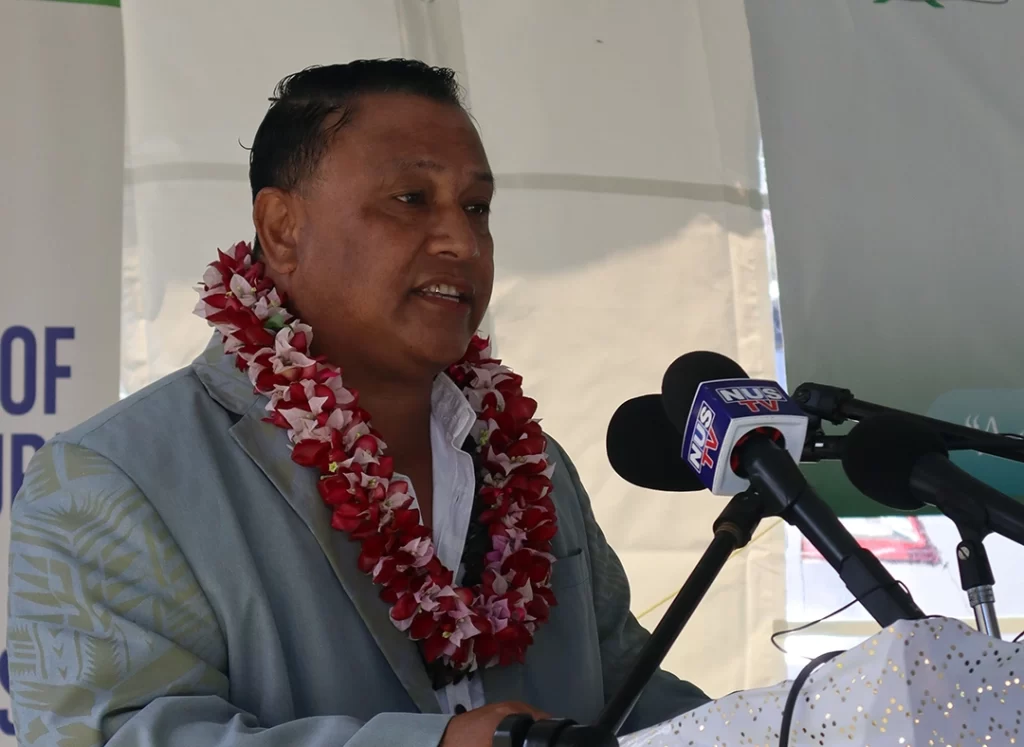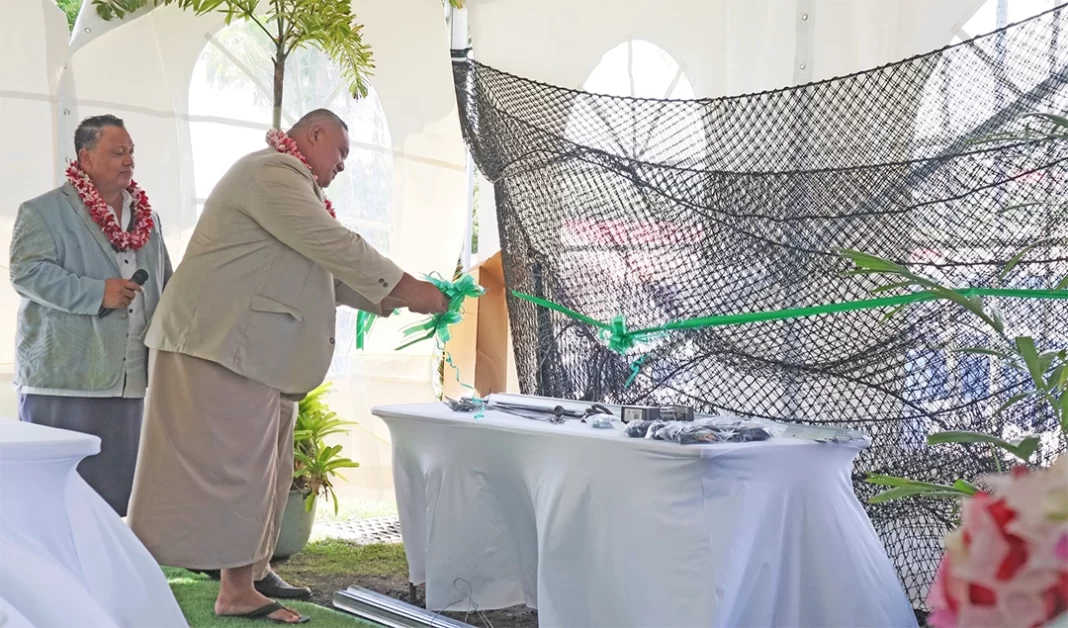The Government has launched the next phase of its effort to combat the feral pig problem affecting Samoan farmers, with the official distribution of pig traps to new districts in Upolu.
The Minister of Agriculture and Fisheries, Hon. Niuava Eti Malolo Funefeai, officiated the launch on Tuesday morning at the Fugalei Market, where traps were handed over to District Development Councils not included in the 2023 pilot rollout.
“This event represents another step in our shared efforts to protect and strengthen our agricultural systems by addressing one of the most persistent threats faced by our farming communities… the prevalence of feral pigs,” said Niuava.
According to the 2020 Agriculture Census, over 60% of farming households identified feral pigs as a major issue, responsible for damaging crops, reducing food availability, and cutting into farmers’ income.

The new traps are part of the STODAS Project (Sustainable Transformation of Domestic Agrifood Systems), supported by the European Union through the FAO and implemented by the Ministry of Agriculture and Fisheries.
Pilot testing of the traps in selected Upolu and Savaii districts last year produced success rates of 80–90%, with some traps capturing up to 20 pigs at a time. The Ministry is now expanding the programme to more areas, with Savaii scheduled to receive traps next week.
While the traps are an immediate measure, Niuava stressed the need for long-term solutions, including better fencing of pig farms to prevent domesticated pigs from becoming feral and destroying plantation areas.
“Our Ministry is working on a national policy and legislative framework to support proper fencing and pig farm management,” he said.
Niuava also called on District Development Councils to support the programme’s success by helping install, maintain, and monitor the traps. The Ministry will continue to provide advisory support and conduct follow-up visits to ensure effective use of the traps.
He acknowledged the support of the European Union and FAO, and thanked local councils and farming communities for their continued cooperation.
“The work does not end here. We all share the responsibility to protect our crops, secure our food, and improve the livelihoods of our people,” he said.





